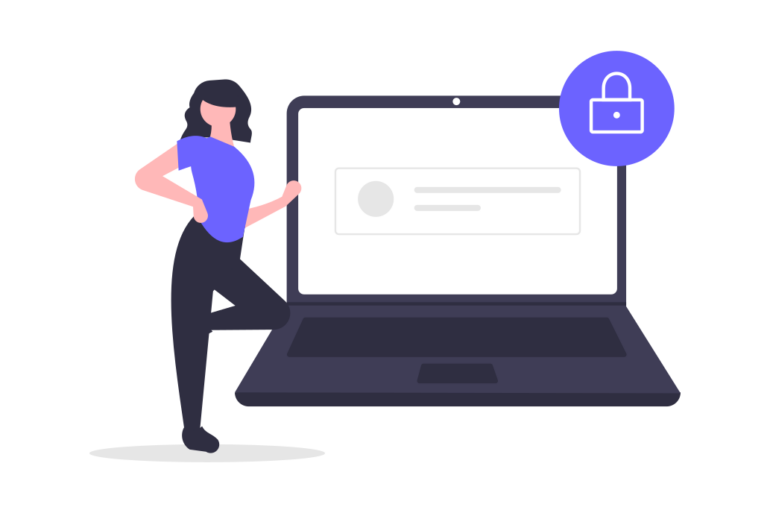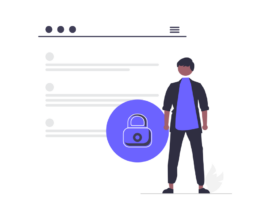A Virtual Private Network (VPN) establishes a secure network connection between the user and the internet. It describes an opportunity to establish a protected network when the user is using any public network. With the help of a VPN, all the data traffic of the user is routed through an encrypted virtual tunnel and also it does provide a secure channel against all external malware attacks.
What is a VPN?
A Virtual Private Network (VPN) is a channel that gives its user online privacy, anonymity and security by creating a private network from a public internet network connection. It enables users to send and receive any kind of data across shared or public networks with the same privacy and security that the users would have experienced had they been directly connected to any private network. Applications and web pages running across a VPN network may therefore benefit from the management, functionality and security of the private network. It also provides access to the resources that when connected to any public network would have been inaccessible. While using a VPN our data gets encrypted and thus when we use the internet, our IP address too becomes inaccessible and thus our location becomes invisible to everyone. In simpler words, VPN masks our IP address and thus our online action becomes untraceable. The security provided by a VPN service is even greater than that provided by a secured Wi-Fi Hotspot.
Need to use a VPN service
While we are using the internet, our private data and browsing habits are liable for getting exposed due to an unsecured public network. With a Virtual Private Network also known as VPN, the chances of our private data getting exposed are significantly reduced and hence VPN should be a must for all of us who deal with private data and are responsible for handling them.
It may happen that at times when we make use of any public network, we may be working on some really private information which by any means should not get leaked may it be any file concerned with your job, your bank account details, any important emails or may it be some other private information. So, unless we log into any private Wi-Fi network, any data that we work on during our online session is at high risk of getting leaked to any stranger who may be working on the same network. So, the encryption and anonymity that a VPN network provides helps protect our private data that we may be working on during any online session using any public network.
How does a VPN work?
A VPN network hides the user’s IP address by letting the network redirect it through a remote server which is specially configured to run by a VPN host. The VPN creates a data tunnel between the user’s local network and the exit node in any another location which may be present in any other part of the world. That’s because the search activity gets associated with the VPN’s IP address and not with the users. And as a matter of fact, a VPN service provider has got servers all over the world meaning that the user’s search activity could appear to originate at any of them. A VPN works like a filter and turns the user data into gibberish form. This means that when a user works online with a VPN, the VPN server becomes the source of the user data and the Internet Service Provider (ISP) and other third parties cannot see what data you are working on even if they try getting their hands on your data.
What information can a VPN keep secure?
A VPN can hide any information that a user may be working on which can put the user’s privacy at stake. The information that a VPN keeps secure are:
- User’s Browsing History:
The Internet Service Provider (ISP) and the web browser can very well track the user’s browsing history and get to know about everything that a user works on when online. Keeping one’s browsing history private is important because, without that, the web browsers or ISPs can track the user’s search history and can sell that information to any private browsers who based on that may show targeted ads or may even take any other advantage of it. - User’s IP address and Location:
If any anonymous party finds out about the IP address or the location of any user, they can very well access the search history of the user and can gather, view or even sold it for their advantage. Since, a VPN server uses an IP address that is not of the user but of any VPN service provider located around the world, the privacy and the security of the user’s data is well ensured. - User’s devices:
A VPN can protect all the user devices from all those who are prying on it and wanting to make your device their prime target for cybercrimes. A VPN helps protect all the data that a user deals with on any device may it be a desktop computer, laptop, smartphone, tablet or any other technology. - User’s Location for Streaming:
It may be that any user is paying for any streaming services. The streaming services are available at one location only and if a user exit that location the services may no longer be available at the new location. This may be due to the contractual terms and conditions that may not allow streaming at some other locations. A VPN also allows a user to select an IP address and then give access to any streaming service without even worrying about data or speed throttling. - Web Activity to Maintain Internet Freedom:
A VPN does not allow anyone including the web browsers and the Internet Service Providers to access a user’s browsing history. So even if any government agency asks any Internet Service Provider (ISP) to supply records of a user’s browsing history, they may not be able to do so. S o a VPN can help protect internet freedom as well.
The privacy and security of any VPN network are better than even private Wi-Fi Hotspots that are secured by passwords due to the encrypting done by the VPN Service Provider. A good VPN can help you keep your private data safe and secure.


